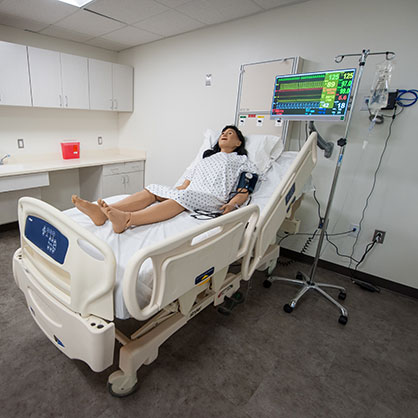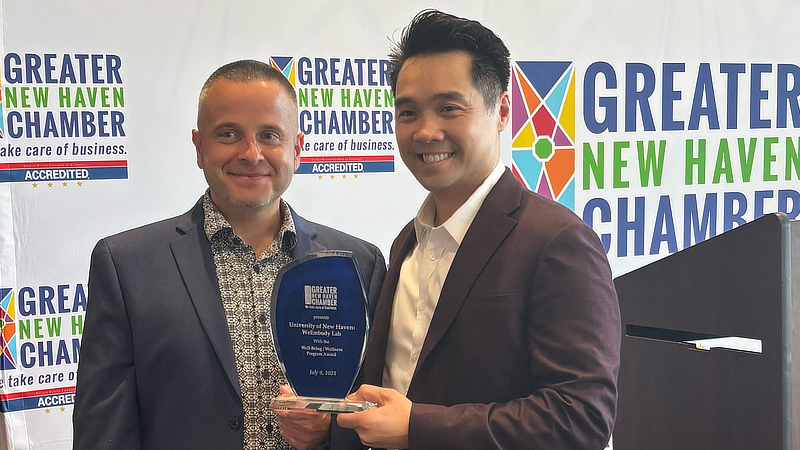Help the Community Stay Healthy
Unlike the traditional model of medicine, which is centered on diagnosing and treating illness in individual patients, those in the field of public health focus on the prevention of disease in the general public and on educating them to improve wellness.
Those who enter this field must be able to think strategically about the many forces that impact public health — the environment, relationships, and education, to name just a few. They must also be prepared to lead, boldly rising to the challenges, rigors, and changes that define public health and health systems in the 21st century.
Our B.S. in Public Health program prepares students to enter this field by providing them with a foundation in epidemiology, biostatistics, social and behavioral sciences, healthcare administration, and environmental health as well as the strategic thinking, administrative, planning, data collection and analysis, and communication skills that employers value highly and which lay the foundation for a lifetime of career success.
View Course BrochureEnvision Your Future
The information below is designed to show the many possible careers you could pursue with your major. The research is provided by Encoura, the leading research and advisory firm focused exclusively on higher education. It includes median national salaries and industry growth projections over the next decade. Click here to view the full report.
Personal Services Managers
7% Growth 2021-2030
Medical Health Services Managers
23% Growth 2021-2030
Statisticians
26% Growth 2021-2030
-
Principles of Epidemiology
Take part in an introduction to the fundamental definitions, terms, concepts, methods, and critical thinking used in epidemiology. The material presented in this course is designed to lay the foundation for future study and practice in population health activities.
-
Health Economics and Finance
Learn to understand health policy and health systems examined from an economic perspective. Basic economic theories and their relationships to the structure and function of the US healthcare system are explored. Healthcare labor markets and health insurance will also be covered.
-
Injury Prevention
Study the causes and incidence of injuries and will explore public health approaches to research and prevention of injuries. Age-related distribution of injuries, risk factors and causes of injuries, and prevention and injury reduction efforts will be covered. New risk factors for injuries, as well as new efforts in injury control, will be discussed.
-
Public Health Administration
Focus on administration in public health, including the interface between the U.S. healthcare and public health systems, the organization of the public health system in the U.S., distribution of resources across various populations, and emergency preparedness and response. Students will learn how public health professionals work with their healthcare partners to deliver health services, address health disparities, and ensure that all agencies within healthcare have the capacity to conduct disaster human services and the ability to respond and recover during a disaster.
-
Full List of Courses and Learning Outcomes for Public Health
The University of New Haven offers a wide variety of in-depth courses that create a transformational educational experience for our students. To view the complete list of courses you'll take while pursuing a Bachelor of Science in Public Health, check out the Academic Catalog:
Public Health, B.S.
Public Health Minor
In the works — Dual Degree Programs
Beginning with the Fall 2021 semester, we will be offering four dual degree programs:
- an Accelerated program, which allows you to earn both your B.S. in Public Health and your Master of Public Health (MPH) in 4 years
- a Direct Entry program, which allows you to start the MPH program with us immediately after earning your B.S. in Public Health
- an Accelerated program, which allows you to earn both your B.S. in Public Health and your Master of Healthcare Administration (MHA) in 4 years, and
- a Direct Entry program, which allows you to start the MHA program with us immediately after earning your B.S. in Public Health
Learn more about about our innovative Dual Degree Programs.
Train Under Faculty Who Have Been Trained by the Best.
If your public health education is only as good as the people who teach you, you will be very well trained indeed. Your professors received their education at the country’s leading public health institutions — Johns Hopkins, Yale University, and Harvard, to name just three.
Get an inside look at what differentiates the University of New Haven and how your experiences as a student will prepare you for success.

Study Abroad

SHS Facilities
Health Professions Advising Center (HPAC)
Learn MoreSHS Study Abroad Opportunities
Watch Full ScreenPre-Medical Studies Designation
Learn MoreNationally Recognized Center for Career Development
All University of New Haven students have access to the many resources available through the University’s Career Development Center, which has been named one of the best in the nation by The Princeton Review.
From career assessments, networking, and job shadowing to on-campus interviews and salary negotiation, the Career Development Center provides the skills and connections to identify a meaningful career and an opportunity to pursue your passion.
Learn MoreNews

The Charger Blog
University of New Haven’s WeEmbody Lab Awarded for its Impact on Health Equity
Honored by the Greater New Haven Chamber of Commerce at its annual Health Care & Life Sciences Awards, the University’s WeEmbody Lab was recognized for its leadership in promoting mental wellness and health equity through research, advocacy, and student mentorship.
Various Dates
- Information Sessions and Campus Tours 10 a.m. or 1 p.m.
-
Admission Requirements
Whether you're still in high school or are transferring from another college, we offer full- and part-time opportunities for undergraduates from inside the U.S. and abroad. The admission process can begin as early as the end of your high school junior year.
The Application Process -
Financial Aid Opportunities
We offer a comprehensive financial aid program, with students receiving assistance in the form of grants, scholarships, student loans, and part-time employment. Funds are available from federal and state governments, private sponsors, and from university resources. More than 85 percent of the University's full-time undergraduate students receive some form of financial assistance.
Learn More

